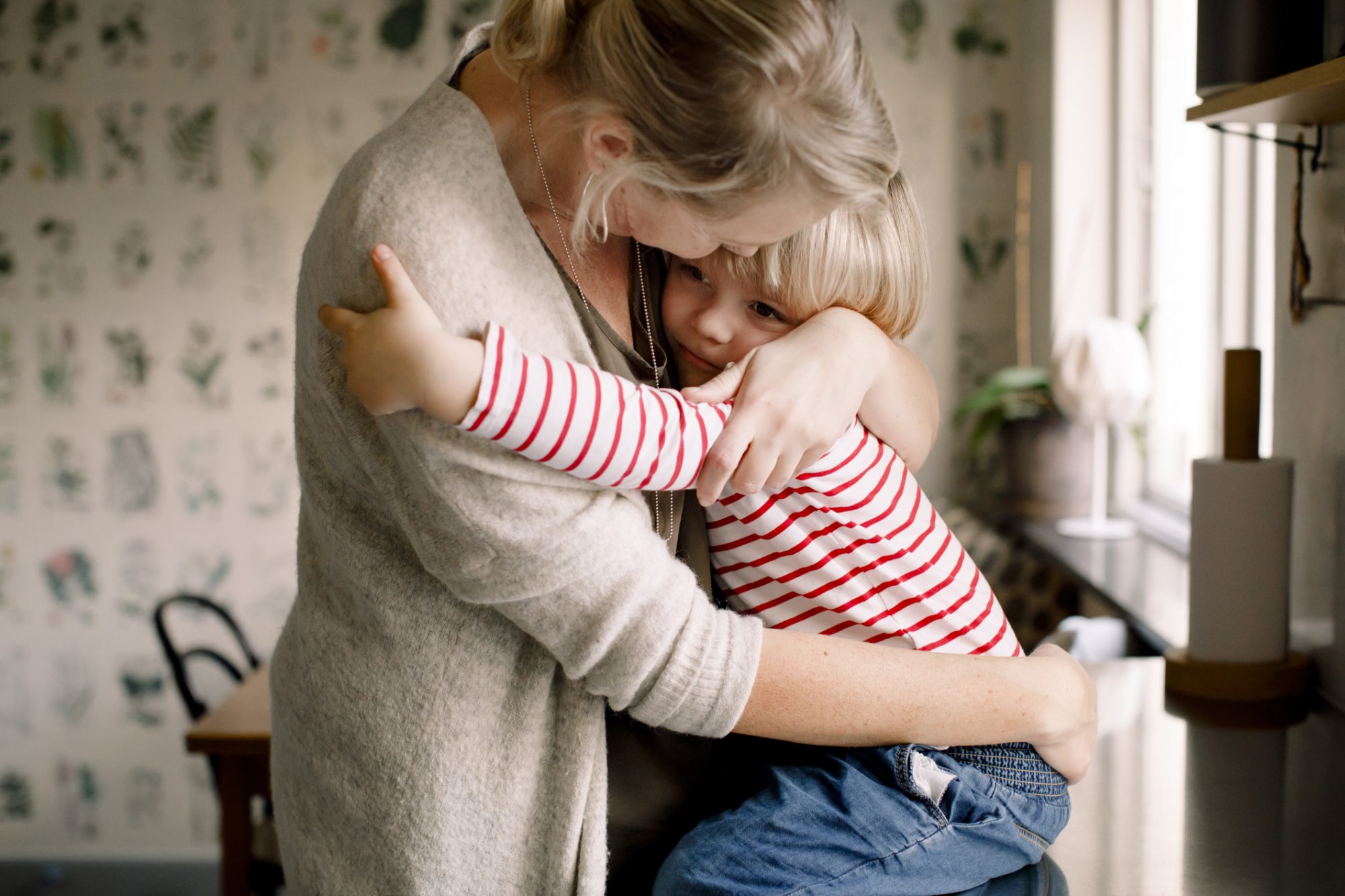
Once you're a parent for a couple of years, you're likely used to ignoring or dismissing when people ask when you're going to have another baby. While this question can feel rude and intrusive when it comes from friends, family, or even strangers, it's definitely easy to change the subject on them. But when your own baby starts asking for a little brother or sister, things can start to feel more complicated.
"My son was around 3 years old when he started asking if he was going to get a baby brother or sister," says Victoria Pollard, a mother of one in North Carolina. "I think around that time he saw some of his friends getting baby siblings and he wondered if that was something our family would do."
Initially, Pollard struggled to answer his questions, "I love being a family of three, and I think it's right for us, but there's a big part of you that wants to make your child happy," she says. "I never thought about having another baby unless my son was asking about it and then it did make me think, should I? Am I being selfish? Is he missing out on something?"
While it's common for kids to wonder why their family doesn't look like another that they've seen in person or on television, for some children, the desire for a sibling is more than just a passive wondering. "Not all only children have a desire for a sibling, but for those that do, it can be normal for the issue to come up again and again at different points in their childhood," says Michelle Harris, LCSW, MA, founder and CEO of Parenting Pathfinders. "As kids are growing through different stages, they might miss the sibling they don't have in different ways. A 3-year-old might wonder why they don't have a sibling because their best friend does. A 6-year-old might long for the playmate they imagine a sibling would be and a teenager may wish for a confidant as they navigate late adolescence."
For many only children, pandemic-related shutdowns and resulting loneliness have made the desire for a sibling seem more urgent. "For a lot of kids, being out of school and stuck at home has really put a spotlight on some of the desires they've had for a sibling as they imagine what it would be like to have a buddy at home with them," says Leela R. Magavi, M.D., an adult, adolescent, and child psychiatrist and the regional medical director for Community Psychiatry, California's largest outpatient mental health organization.
When kids struggle to manage their feelings of disappointment around not having a sibling, parents might be unsure about the best way to respond. Experts say that, while this particular disappointment can feel unique, parents can feel confident responding in much the same way they would to any major disappointment a child experiences. "No matter what the issue is," says Dr. Magavi, "there are things parents can do to help kids process and move through disappointment that will help them thrive in the long run."
Validate their big feelings.
When kids express big feelings, it's important for parents to make sure they know they are heard. "Parents can validate their kid's feelings by actively listening to what they are saying and responding by sharing back what you heard them say," says Harris. Validation often sounds like, "I hear how much you want a sibling, I know it can be hard not to have something that you really want. I'm so glad that you're telling me the things that you want and that are important to you."
Answer questions in an age-appropriate manner.
Kids of a certain age often seem like "why?" machines, but it can be tough for parents to know what they should or shouldn't share with their kids. This can be especially true when the reason they don't have a sibling feels like a grown-up topic. "I encourage parents to think about their child's age and the information they are capable of handling and find a way to tell them why they don't have a sibling in an age-appropriate manner," says Dr. Magavi. "When kids don't know why they're missing something in their life, they often believe it has something to do with them."
Get to the bottom of their desire.
While the desire for a sibling may seem simple on the surface, the reason behind the desire can vary greatly from kid to kid. "Some kids imagine that a sibling might fill the role of a playmate while others like the idea of having a baby to care for and still others imagine that it would give them a sense of closeness that they're not feeling with other family members," says Harris. When parents respond with curiosity and a desire to learn more about why their child has such a strong desire, they might be able to help meet the underlying needs in other ways.
Respond clearly and highlight the positives.
It might feel softer to respond with a "maybe" rather than a "no," but parents should avoid giving their child false hope if they know they won't be adding to their family. "It's important to be compassionate, but clear," says Dr. Magavi. "If circumstance, rather than choice has dictated their family size, parents can share that they too wish things were different and can then highlight the great things about their family exactly as it is."
Teach strategies for dealing with sadness.
"Different tools work for different kids," says Dr. Magavi. "Parents can encourage kids to try out a range of strategies for coping with feelings of sadness like painting, drawing, journaling, talking with friends or family members, exercising, or engaging in another hobby they enjoy." Once a kid identifies strategies that work for them, parents can remind them of what has helped them feel better in the past if they're feeling particularly down.
Set loving boundaries.
Sometimes, managing a child's persistent desire for a sibling can take an emotional toll on parents, especially if they too experience sadness about their family size. "It's okay to set loving boundaries," says Harris. "It's okay to tell a child that you've already responded to their question and ask them to remind you what you said instead of going over the same things time and again."
Victoria Pollard's son is happy and thriving in school, and a recent move landed their family in a neighborhood with a lot of other kids his age. "I think having so many kids to play with and getting to spend a lot of great quality time with myself and his dad have helped him move past the questions he used to ask about having a sibling," says Pollard. She's looking forward to seeing him grow up and enjoying life as a family of three. "I love our little unit," she says, "it feels perfect for us."





